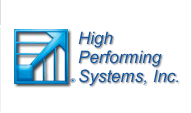Debra Cannarella
Director of Operations, High Performing Systems, Inc.
A strong leader development or coaching program often begins with identifying a need and then using an assessment to understand the situation better. In the case of executive coaching, one of the most powerful assessments available is the EQ-i, a validated tool for providing feedback on Emotional Intelligence. Available as a self-report or 360 assessment, the EQ-i provides feedback on 15 Subscales in an easy-to-understand format. The results can be used to form the basis of an action plan to address leadership development needs.
When working with Michael, the Executive Vice President of a retail chain, and his staff, we noticed that his team was continually frustrated by what they described as having too many changes and adjustments in their work assignments and priorities. Michael was seen as flexible and easy-going, always willing to try new ideas. The team felt supported and encouraged to bring new options they wanted to consider for the business. Staff meetings were high-energy and included lively discussions with lots of brainstorming and idea generation, focused on possibilities for the future of the company.
The staff would leave those meetings and implement the changes they discussed, taking action to complete the tasks they and Michael talked about. In subsequent meetings, they would often discover that Michael had changed his mind and that the previous “decisions” weren’t really decisions at all. Now it sounded like Michael wanted to try something completely different. After implementing the new direction, the team would again get hit with other adjustments and decisions, creating a vicious—and frustrating—cycle of rework and changes.
For the executive coaching with Michael and team development with the team, we asked them to complete the EQ 360 on Michael. On the self-report section of the EI assessment, Michael rated himself in the high range on Flexibility, which is defined as “adapting emotions, thoughts and behaviors to . . . dynamic circumstances or ideas.” On the 360 feedback from his team, they rated him even higher—so much higher, in fact, that their perception was that Michael was too flexible and that his frequent changes in direction were becoming a source of frustration for the team.
The debrief session to review the assessments’ results led the team to an important insight. They finally realized what was happening. From Michael’s perspective, his ideas in the brainstorming sessions were literally just ideas he was considering. From the team’s perspective, they heard the discussions as final decisions they needed to implement. They were taking action on what they thought were decisions, while Michael simply intended the meetings to generate ideas for discussion and consideration. Once they were able to pinpoint the issue more precisely through the lens of the EQ-i assessment, it was easy to create an action plan for Michael as well as the team.
The first step the team wanted to accomplish was acknowledging and appreciating Michael for his openness to new ideas. They didn’t want to lose that aspect of his leadership style. The ease with which they could bring new ideas to the executive level was a clear organizational strength they wanted to maintain.
Frustrations occurred when Michael appeared to be changing his mind. The key, therefore, was figuring out when an idea turned into a final decision. To solve this challenge, the team created a process to review each idea directly at the end of each meeting. As they generated a list of possibilities, they would end the meeting with an item-by-item review of each idea. Each item on the list would receive a final designation: idea for consideration that wasn’t ready for action yet, or a final decision on which to begin execution now. This simple step did not add very much time at the end of each meeting, but it saved substantial time in the long run because fewer tasks were completed that ended up being changed later.
Using the EQ 360 helped Michael identify a strength that became a challenge when overused. The feedback with Michael and coaching with the team allowed them to leverage Michael’s flexibility and openness while harnessing his tendency to overdo it. The solution was a win-win for the whole organization: new ideas could be discussed enthusiastically, and the team was clear on which actions to take when the time was right. The rework and frustrations were reduced substantially, and the efficiency of the team was maximized, allowing them to implement quickly and effectively on the decisions they now knew to be final.
Click here for a printable copy of this article.
_____________________________________
Debra Cannarella is the Director of Operations at High Performing Systems, Inc. (HPS), a consulting company that provides assessments, consulting and training solutions to help organizations excel. HPS conducts certification training on the EQ-i 2.0 assessment and provides individual, leader and executive coaching to clients. Contact Debra by email at debra@hpsys.com.
High Performing Systems is an award-winning world leader in EQ-i 2.0® certification (since 2005), EI training and implementation, leader coaching and success profiles. Call 706-769-5836 to talk with an experienced EI practitioner about your organization's specific needs.
|
